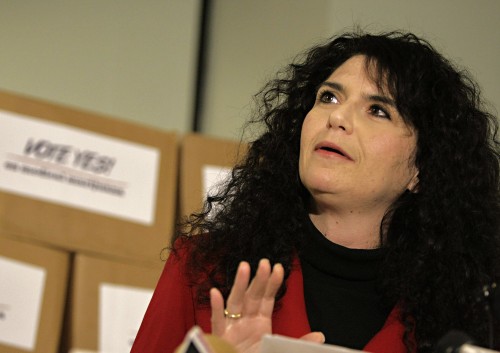PHOENIX — A doctor is upset after the Veterans Affairs hospital in Phoenix blocked her from giving a lecture about marijuana’s effect on veterans with post-traumatic stress disorder.
This summer, Dr. Sue Sisley is conducting a study on PTSD and medical marijuana that is funded by a Colorado marijuana research grant. Although the Drug Enforcement Administration approved her work, the Phoenix VA Medical Center told Sisley she couldn’t give a presentation there.

“The notion that the Phoenix VA hospital refuses to allow that information to be shared with their medical staff is really shameful,” Sisley told KTAR-FM.
Medical marijuana is legal in Arizona, but it’s still a federal crime to possess pot. The VA center isn’t allowed to promote or recruit veterans for marijuana research, said Dr. Samuel Aguayo, associate chief of staff for research at the Phoenix hospital.
“VA medical staff are not authorized to make a decision on whether marijuana and marijuana research is appropriate for veterans,” he explained.
Sisley, however, argued that the VA has a duty to support research that could uncover new treatment for veterans with PTSD.
Phoenix VA: Read more about pot and PTSD
Q&A: This Ivy League doctor sees cannabis’ medical promise, wants it rescheduled
Feds on board: Colorado-funded study on pot and PTSD finally gets OK to proceed
Sue Sisley: This is why medical pot research needs state cash … for now
Watch The Cannabist Show.
“If they refuse to do that, I think that is negligent and it’s an abomination,” she said.
Congress recently passed legislation that would allow VA doctors to discuss medical marijuana with veterans. Aguayo said the center might reconsider Sisley’s lecture if that bill is signed into law.
“We will examine what the law allows and doesn’t allow,” he said. “It may have an impact on our decision to permit this activity here at the Phoenix VA or not.”
___
Information from: KTAR-FM
Updated May 26, 2016 at 3:21 p.m. The following corrected information has been added to this article: Because of a reporting error, this story has been updated to reflect the DEA approved the study.
